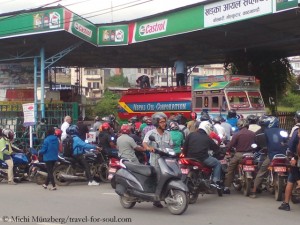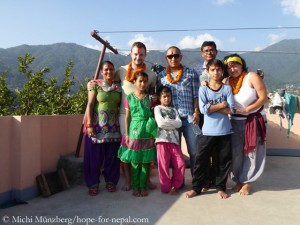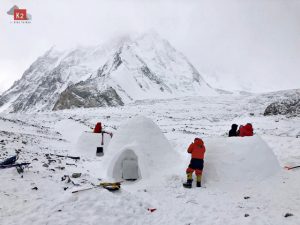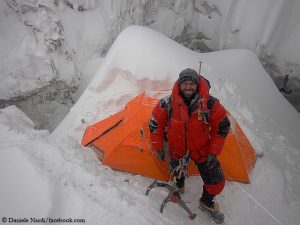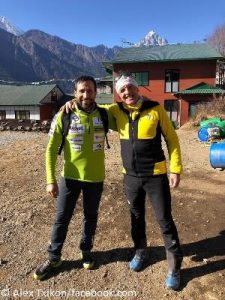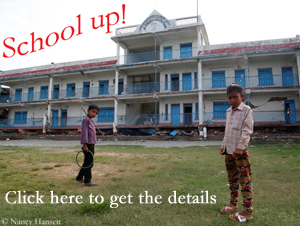First the earthquake, now the blockade
At last! Many Western governments have now canceled their general travel warning for Nepal that they had imposed after the 25 April earthquake. Instead, they are now only warning not to travel to certain regions of the Himalayan state. So the German Foreign Office called the trekking regions Langtang and Manaslu problematic areas, where access “is not possible or only with considerable difficulties”. The British Foreign Office advises against traveling to these regions too and calls in addition the districts Sindhupalchowk and Dolakha. From the perspective of the German Government “particular caution is advised” when traveling in these or other areas that were hit hard by the quake. The US Department of State notes that “the frequency and severity of aftershocks have greatly diminished”, but encourages travelers “to consult carefully with their travel and trekking agencies for current, location-specific information and to heed warnings of potential danger”. All those governments point to a new problem in Nepal – a political one.
Everything is short in supply
For two weeks, the border to India is next to closed due to political protests in the Terai districts. Fuel, gas, basic food, medicine – everything is running short in Nepal. “Several hotels are serving sandwiches and salad only. Many small restaurants already had to close”, Michi Muenzberg writes from the capital Kathmandu. “At normal mealtimes thick trails of smoke are billowing through the streets, as people are cooking on open fires.”
Stranded in Kathmandu
Three years ago, the German woman, who is living in the small town of Wilthen in Saxony, traveled to Nepal for the first time. Since then, the country has become her second home. Michi founded a private aid project, “Hope for Nepal”. She arranges school sponsorships for Nepalese children and supports a children’s home in Kathmandu. Now Michi traveled to Nepal again to help the earthquake victims. But she is stranded in Kathmandu for two weeks because of the border blockades in the Terai districts.
No material transports possible
“Sure, we could rent one of the few still driving taxis, but that would generate horrendous costs so that it would be simply useless. And the transportation of construction materials could not be done this way”, Michi writes. “I feel very sorry for the people in these areas who were hoping that things turned better after the monsoon. There is an urgent need to build shelters for winter and sanitary facilities. How, in any way, can we manage this?”



